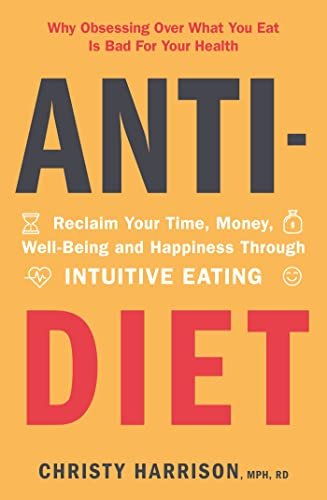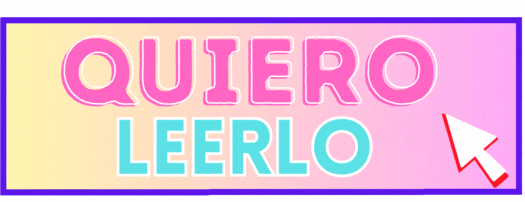Anti-Diet: Reclaim Your Time, Money, Well-Being and Happiness Through Intuitive Eating (English Edition)


PREGUNTAS FRECUENTES
«The Art of Making Memories» by Meik Wiking: A Guide to Creating Lasting Experiences
The ability to create lasting memories is a universal desire. From special occasions to everyday moments, we all want to capture life’s precious experiences and hold onto them forever. In his book, «The Art of Making Memories,» Meik Wiking provides insights, inspiration, and practical tips on how to create meaningful moments that will stay with us for years to come.
Wiking is the CEO of the Happiness Research Institute in Copenhagen, and he has become well-known for his research and writing on the science of happiness. In «The Art of Making Memories,» he applies his expertise to the topic of memory-making, revealing the factors that make certain experiences stand out in our minds and providing guidance on how to cultivate these factors in our own lives.
The book is organized around three themes: creating memories from experiences, from people, and from things. Wiking explores each of these categories in depth, with chapters on topics such as travel, food, friendship, family, and nostalgia. Throughout the book, he emphasizes the importance of mindfulness, curiosity, and gratitude in cultivating positive experiences and memories.
One of the key takeaways from «The Art of Making Memories» is the idea that memories are not just passive records of our experiences – they are actively created by our brains. Wiking cites research that shows how our memories are influenced by factors such as emotion, novelty, and sensory stimulation. By understanding how memory works, we can take deliberate steps to create experiences that are more likely to stick in our minds.
For example, Wiking suggests that we can enhance our memories by paying attention to the sensory details of our experiences – the sights, sounds, smells, and textures that make them unique. He also recommends introducing a sense of novelty into our experiences, whether by trying new foods, visiting new places, or trying new activities. By intentionally creating experiences that engage our senses and our curiosity, we can increase the likelihood that they will become long-lasting memories.
Wiking also explores the role of social connections in creating memories. He emphasizes the importance of solid relationships with family and friends, and suggests that we make a conscious effort to cultivate connections with the people in our lives. He notes that shared experiences are often more memorable than solitary ones, and encourages us to prioritize spending time with loved ones and creating new memories together.
Another key theme in the book is the significance of nostalgia. Wiking points out that nostalgia is not just a sentimental longing for the past – it can actually serve important psychological functions, such as providing a sense of continuity and stability in our lives. He suggests that we be intentional about preserving mementos and keepsakes that remind us of important people and events from our past, and that we consciously revisit these memories from time to time to strengthen our connection to them.
Overall, «The Art of Making Memories» is a thoughtful and engaging guide to creating experiences that will stay with us for a lifetime. Wiking’s blend of scientific research, personal anecdotes, and practical advice make the book accessible and relatable, and his emphasis on the importance of mindfulness, gratitude, and social connections resonates with readers of all ages and backgrounds. Whether you’re planning a special occasion or simply looking to infuse your daily routine with more meaning and joy, this book has something to offer. By following Wiking’s guidance, you can become a master of memory-making and create a lifetime of cherished moments.
1. ¿Qué es la dieta anti-dieta?
La dieta anti-dieta es un enfoque revolucionario de alimentación intuitiva que busca mejorar la salud y el bienestar de las personas, sin seguir las restricciones y prohibiciones impuestas por las dietas tradicionales.
2. ¿Qué beneficios tiene seguir la dieta anti-dieta?
Seguir la dieta anti-dieta puede mejorar tu relación con la comida, aumentar tu autoestima, ayudarte a perder peso de forma natural y mejorar tu salud mental y física.
3. ¿Es la dieta anti-dieta una dieta restrictiva?
No, la dieta anti-dieta no es restrictiva. En cambio, se trata de aprender a escuchar a tu cuerpo y a tus necesidades alimentarias para tomar decisiones saludables y satisfactorias.
4. ¿Cómo se puede empezar a seguir la dieta anti-dieta?
Para empezar a seguir la dieta anti-dieta, es importante dejar de seguir las normas y directrices tradicionales de la dieta y comenzar a escuchar a tu cuerpo y sus necesidades. Esto significa prestar atención a tu hambre, saciedad y antojos, y comer intuitivamente.
5. ¿Puede la dieta anti-dieta ser efectiva para perder peso?
Sí, la dieta anti-dieta puede ser efectiva para perder peso de forma natural, ya que te ayuda a tomar decisiones alimentarias saludables sin sentirte privado o restringido.
6. ¿Cómo se puede mantener una dieta anti-dieta mientras se come fuera de casa?
Al comer fuera de casa, es importante prestar atención a tus señales de hambre y saciedad y elegir alimentos que sean nutritivos y satisfactorios. Se recomienda evitar el consumo excesivo de alcohol y limitar los alimentos procesados y fritos.
7. ¿Cuáles son las principales barreras para seguir la dieta anti-dieta?
Las principales barreras para seguir la dieta anti-dieta incluyen la presión social para seguir dietas tradicionales, el sesgo cultural hacia ciertos alimentos y los mensajes contradicentes de los medios de comunicación acerca de la salud y la dieta.
8. ¿Puede la dieta anti-dieta ayudar a reducir los trastornos alimentarios?
Sí, la dieta anti-dieta puede ser una ayuda útil para reducir los trastornos alimentarios al ayudarte a escuchar y respetar a tu cuerpo y a desarrollar una relación más saludable con la comida.
9. ¿Cuál es el papel de la actividad física en la dieta anti-dieta?
La actividad física es importante para mantener una buena salud física y mental, pero no debe ser usada como un medio para quemar calorías o compensar excesos alimentarios. En cambio, se recomienda hacer ejercicio como una forma de cuidar y disfrutar de tu cuerpo.
10. ¿Qué consejos tiene el libro Anti-Diet para mantener una dieta anti-dieta exitosa?
El libro Anti-Diet ofrece una serie de consejos prácticos para mantener una dieta anti-dieta exitosa, como escuchar a tu cuerpo, centrarte en alimentos nutritivos y satisfactorios, establecer límites saludables y conectarte con una comunidad de apoyo y ayuda.






